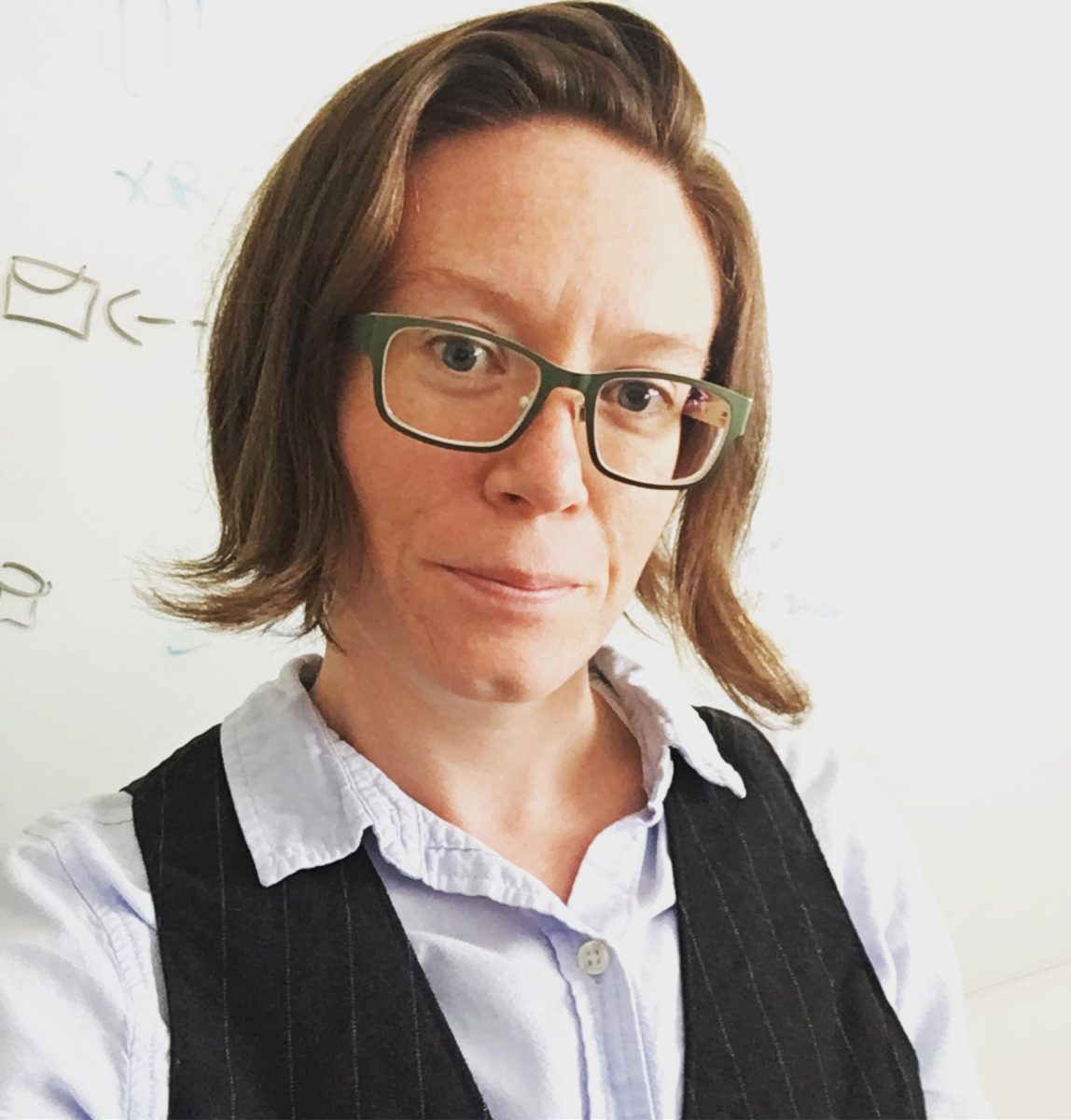When Emma Anderson packed up her bags and moved from Seattle all the way over to the University of Massachusetts, she had no idea that she would soon become the gap bridging the worlds of computer science and drag.
Anderson is the director of inclusive education and teaching support in the College of Information and Computer Sciences, where she mentors undergraduate teaching assistants. Anderson also wields the identity of Lance Mandible, drag king extraordinaire.
Her story began at Oberlin College in 2005, where she initially started as the only queer woman in the computer science department.
“I tell people that I’ve heard one too many times, ‘It’s so nice that there’s a woman here, we really need women in this department,’” Anderson said. “And it was like, you know what? I give up…I can’t be tokenized like this.”
True to her word, she finished college as a gender, sexuality and feminist studies major with a minor in computer science, joking that she was “a computer science dropout.”
“By the time I graduated, I knew that what I really wanted to do was sort of change what computer science education looked like,” Anderson said.
In the back of her mind, Anderson said that she always wanted to be in computer science education, but wanted to change how the field was taught. Following graduation, she taught elementary school technology classes in Seattle and then obtained a graduate degree in education in 2014.
After working in the computer science education space for four years, she decided on a change of pace, one that would prove pivotal to her life.
Prior to moving, Anderson knew she wanted to live in New England. After quitting her job and selling all her belongings, she packed up her Toyota Corolla and drove across the country.
“Within six months, I had met the person that I was going to marry, and I found this job at UMass that I just could not believe existed,” Anderson said. “It was as if somebody had read my whole weird resume and written a job just for me.”
However, it was in the spring of 2006 when her journey in drag began.
“I didn’t come out until I was 18,” she said. “I was playing with gender, exploring what masculinity meant, how I related to masculinity, and it was like the most powerful feeling to dress as a man, and pretend that I was like this asshole guy.”
In 2007 Anderson started to perform officially at Oberlin’s “drag ball,” a tradition dating back to over 20 years ago. She performed with her friends as a drag boy band, called “69 Degrees.”
It would be some time before she put on the proverbial mask again. A drag king show in Seattle revived her passion for performing, and to her that was the moment it came together.
“I think what I really like about drag is that it’s so campy,” Anderson said. “You can really do whatever you want.”
Anderson said that it is the perfect medium for combining various performing arts and making a statement. For her, it was a “natural extension of coming out.”
To the young and curious Anderson, getting into drag was how she explored the boundaries of her gender identity.
“I think at Oberlin, there was a sense that drag was for everybody, like ‘try it on’…here is a night where you don’t have to worry about it,” Anderson said.
As a lecturer for five and a half years, she preaches the idea of seeing students as complete people, an outlook she believes her time at Oberlin shaped. To Anderson, teaching her students to find their calling within the field is how she combines her professional expertise and artistic passion.
“We believe that we can strip away this idea of personal identity from a professional identity, and I just don’t think you ever can,” Anderson said. “No matter what you do, your personal identity always lives in you.”
As she works with graduate students who intend to become instructors, she said that she speaks with them a lot about how to decide how much of themselves they bring to class, as that is something she thinks about each day in her own life.
In that spirit, she is completely open about her identity as a queer woman and her story, in the hopes of seeing more students break away from the stereotype so often assigned to computer science majors.
Anderson also talks about the importance of family within the queer community, specifically the idea of making a family of her own. Having recently become a parent herself, she noted that the drag community is the most diverse one she has been a part of.
“I’m very open with my students about being queer and being a parent,” Anderson said.
For most students in the department, Anderson serves as a support system for learning, but also for those who are growing into their own identities.
“The more you can give yourself permission to have made a mistake…the easier it will be,” Anderson said. “Don’t shame yourself. Let yourself be who you are.”
Olivia Capriotti can be reached at [email protected] and followed on X @CapriottiOlivia and Siddharth Sharma can be reached at [email protected].








